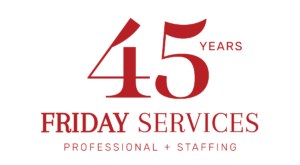
We each have all the time there is but never seem to have enough!
During a sales training seminar, I had each participant make a list of their daily activities. They were then instructed to mark next to each activity the percentage of time they spent on it each day. At the conclusion of the exercise, each participant shared the top five daily activities that took the majority of their time.
This proved to be an eye-opening exercise for this group, as no one, not even the owner of the company, was spending the majority of his or her time on the core functions of their job. Most were spending the majority of their day on peripheral work such as:
- reading and answering email messages
- preparing internal reports
- attending staff meetings
- planning and organizing
- setting appointments
It wasn’t that they never got around to the main functions of their role. It’s that these functions received less attention generally. While administrative activities are meaningful, none of them will keep the doors of your company open or your bank account healthy. Since the sole purpose of any business is to make a profit, the single most important activity is to generate revenue or support those who do.
Time is the great equalizer in life. How a person uses it makes the difference between achieving success and just getting by. Most people go through life believing they have no control over their time; that external demands dictate where and how they use their time. I used to call on a Human Resources Manager who would, without fail, lament the same “My time is not my own” mantra to cancel every meeting I scheduled with her. I hoped she got a good price for it since she gave ownership of her “dash” (the years lived between birth and death) away to others.
“Time is a created thing. To say ‘I don’t have time,’ is like saying, ‘I don’t want to.” ― Lao Tzu
It’s a given that we can’t control time. If we could, most of us would stop the clock in our twenties. But you can make a conscious decision to either go through life with a compass or a clock.
Choosing a compass means you view time as a precious gift. You live life with purpose. You spend your days doing meaningful work. You are present in life and you expect a return on your time investment.
The very idea of “spending” means you’re using something up or exhausting a supply. People who “spend” time at work each day may put more emphasis on being busy than being productive. On the other hand, invested individuals will go the extra mile to achieve the results (return on time investment) that they’re seeking. Time investors know that when time is spent, it’s gone.
There’s no better example of someone living this principle than famous television writer and producer, Norman Lear. That is, adopting what he says is a two-word philosophy that allows him to stay present and focused. “I think the two least-considered small words in the English language may be ‘over’ and ‘next”. “When something is over, it’s over. We’re onto next. I live in that moment.”
Time is a gift we receive at birth. You could be born under a lucky star, but the reality is that none of us know how much time is encoded in our destiny. Time is a gift we should all cherish. Any wise man will tell you … “You can always make more money, but you can never make more time”.
The late Stephen Jobs began each day by looking in the mirror and asking himself: “If today were the last day of my life, would I want to do what I am about to do today?” If the answer was ‘no’, he would change something.
At the end of the day, if time is money and you’ve merely spent your time, you’ll have little to show for the effort you’ve made. A good test of time investment is to reflect back on your day and ask yourself, “am I remembering tasks or accomplishments”?
A farmer told his wife he would plow the north field the next day. In the morning he went out to oil the tractor, but he found he was low in oil, so he went to the storage shed to get some. On the way he noticed that the chickens had not been fed. He went to the corn crib to get some corn, where he saw some sacks on the ground. That reminded him that the potatoes needed sprouting, so he started toward the potato pit to sprout the potatoes. On the way, he passed the wood pile which reminded him that he had to take some kindling to the house. He had picked up a few sticks when an ailing lamb passed by. He dropped the wood and reached for the lamb. And so it continued until he reached the end of the day and had not touched the north field.” ─ Source Unknown
We all have days that make that story relatable. But, we would be wise to make those days an exception rather than a rule. As the wise Japanese proverb teaches us, “Spilled water never returns to the cup”!
When it comes to time, like money, invest wisely!
By Linda Zumstein

